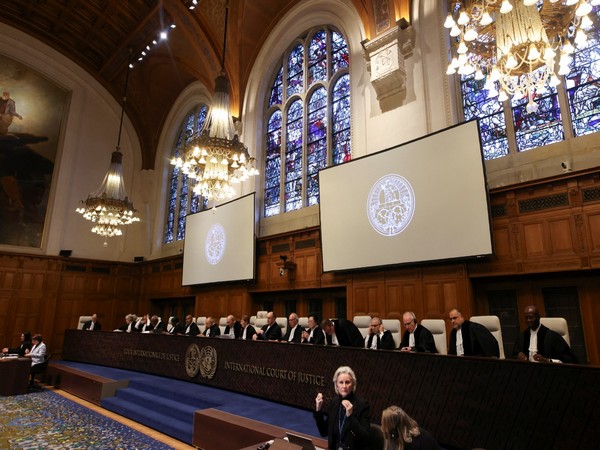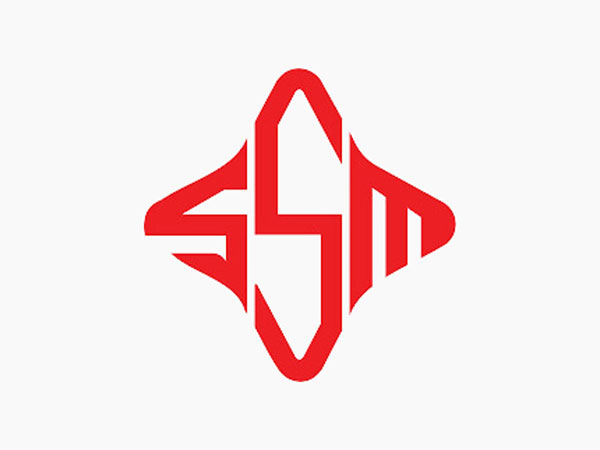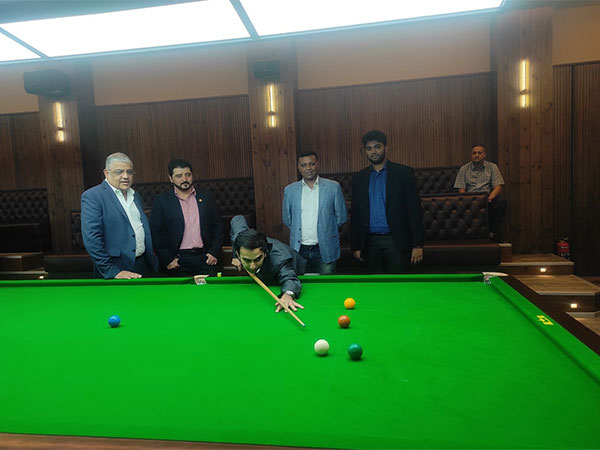
Both sides play heavy on emotion in ICJ hearing
Jan 13, 2024
The Hague [Netherlands], January 13: The UN's top legal body has now heard two days of powerful legal argument on the "crime of all crimes": genocide.
It is now for the judges at the International Court of Justice (ICJ) to decide whether Israel, in its war in Gaza, is guilty of an attempt to "destroy a national, ethnic, racial or religious group, in whole or in part," as defined by the 1948 Convention on Genocide.
There could hardly be a more weighty matter.
Both sides have played heavily on the strong emotions swirling around the conflict that erupted on 7 October last year.
Around 1,300 people - most of them civilians - were killed and about 240 others were taken hostage during the Hamas attack on southern Israel.
More than 23,350 people have been killed - mostly children and women - during Israeli retaliatory attacks on Gaza, according to the Hamas-run health ministry.
The case, brought to the ICJ by South Africa, included a litany of alleged Israeli offences, from the indiscriminate killing of Palestinian civilians to the wholesale destruction of Gaza's infrastructure.
"This killing is nothing short of the destruction of Palestinian life," said one of South Africa's lawyers, Adila Hassin.
Israel's war in Gaza could not be allowed to continue, the South African team argued.
"Entire multi-generational families will be obliterated," Irish barrister Blinne Ní Ghralaigh warned, "and yet more Palestinian children will become WCNSF - Wounded Child No Surviving Family - the terrible new acronym borne out of Israel's genocidal assault."
But on Friday morning Israel hit back, with a mixture of its own emotion and a forensic assault on the South African case.
Images of 132 missing Israelis - most of them still being held hostage in Gaza - were shown to the court.
"Is there a reason these people on your screen are unworthy of protection," Tal Becker, a hugely experienced legal adviser at Israel's Foreign Ministry, asked the court.
Mr Becker and his colleagues were scathing about South Africa's submission, arguing that if anyone was guilty of genocide, it was Hamas.
"Under the guise of the allegation against Israel of genocide," Mr Becker said, "this court is asked to call for an end to operations against the ongoing attacks of an organisation that pursues an actual genocidal agenda".
South Africa, the Israelis said, is guilty of supporting Hamas, a group designated as a terrorist organisation by 41 countries, including the US, EU and UK.
It will probably take the ICJ several years to reach its verdict on the charge of genocide.
The South Africans must know there's a legal mountain to climb to prove their case.
Genocide is notoriously difficult to prove. There needs to be compelling evidence of intent by those actually in charge of Israel's military campaign in Gaza, as well as a pattern of behaviour by the Israel Defense Forces that cannot reasonably be explained as anything other than genocidal.
Remember: this is only about genocide, not whether war crimes have been committed in Gaza, or even whether Israel is engaged in ethnic cleansing, as some allege.
It's one thing to be horrified, even enraged, by countless images of the suffering inflicted on the Palestinians.
It's quite another to conclude that the killing of 1% of the Gazan population, sobering though that number is, represents an Israeli effort to destroy the Palestinian people, "in whole or in part".
But for Israel, which may feel it's on safe ground when it comes to the "crime of all crimes", there's a more immediate concern.
South Africa has appealed to the ICJ to issue nine "provisional measures", designed, in the words of South Africa's 84-page submission, "to protect against further, severe and irreparable harm to the rights of the Palestinian people".
The first of these calls on Israel to "immediately suspend its military operation in and against Gaza".
If obeyed, it would have the effect of bringing Israel's military campaign to a halt.
This could happen within weeks, long before Israel feels it has achieved its military objective of utterly destroying Hamas as a political and military force in Gaza.
For this reason, its lawyers attempted to demolish South Africa's case for "provisional measures", arguing that they had no legal basis and would tie Israel's hands but leave Hamas free to act.
Israel doesn't like the ICJ and feels that the UN as a whole is inherently biased against the Jewish state.
But at a time when international pressure is mounting on Israel to put an end to the huge level of violence in Gaza, it knows that if the court agrees to issue provisional measures, that pressure will only increase.
It's prepared to ignore the court if it feels it has to (and the ICJ has no powers of enforcement), but it would much prefer to win the legal argument.
Source: Fijian Broadcasting Cooperation






